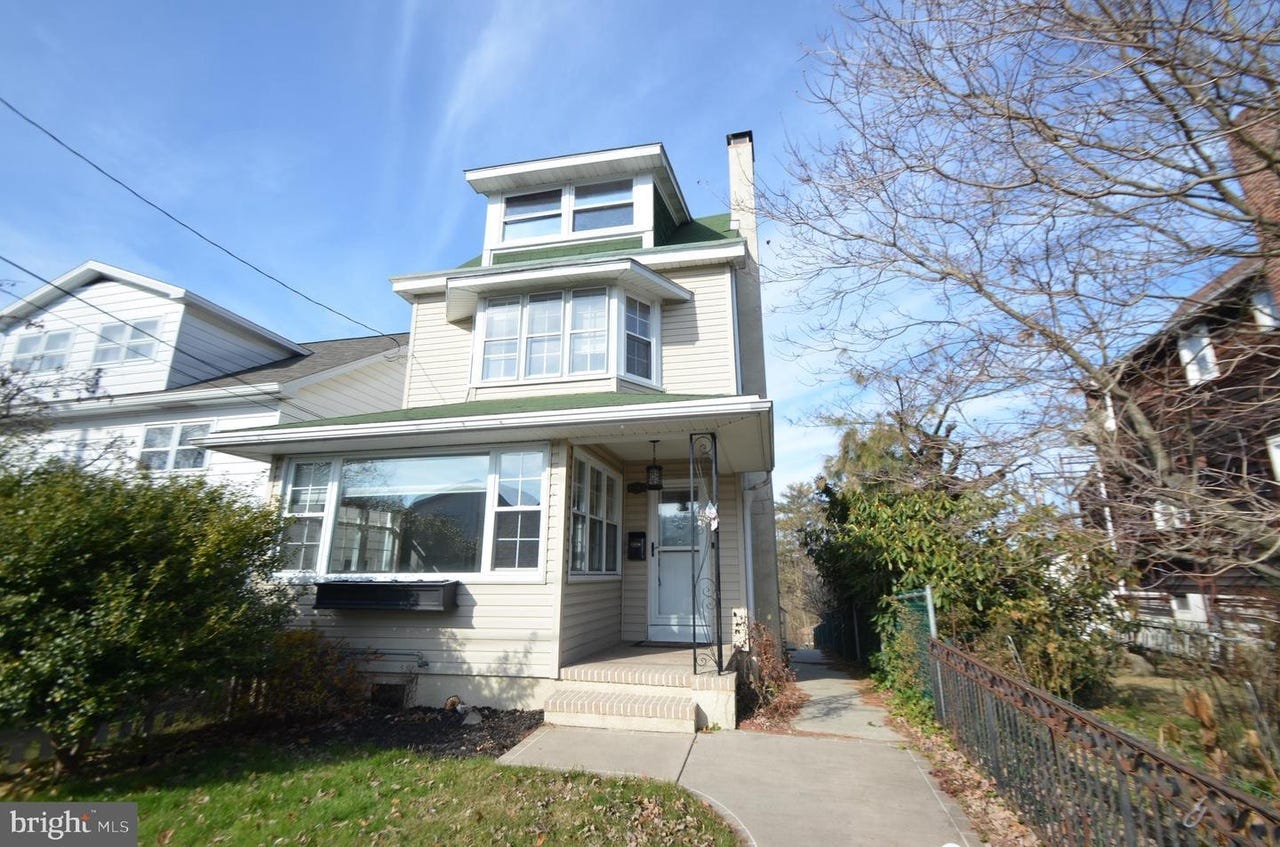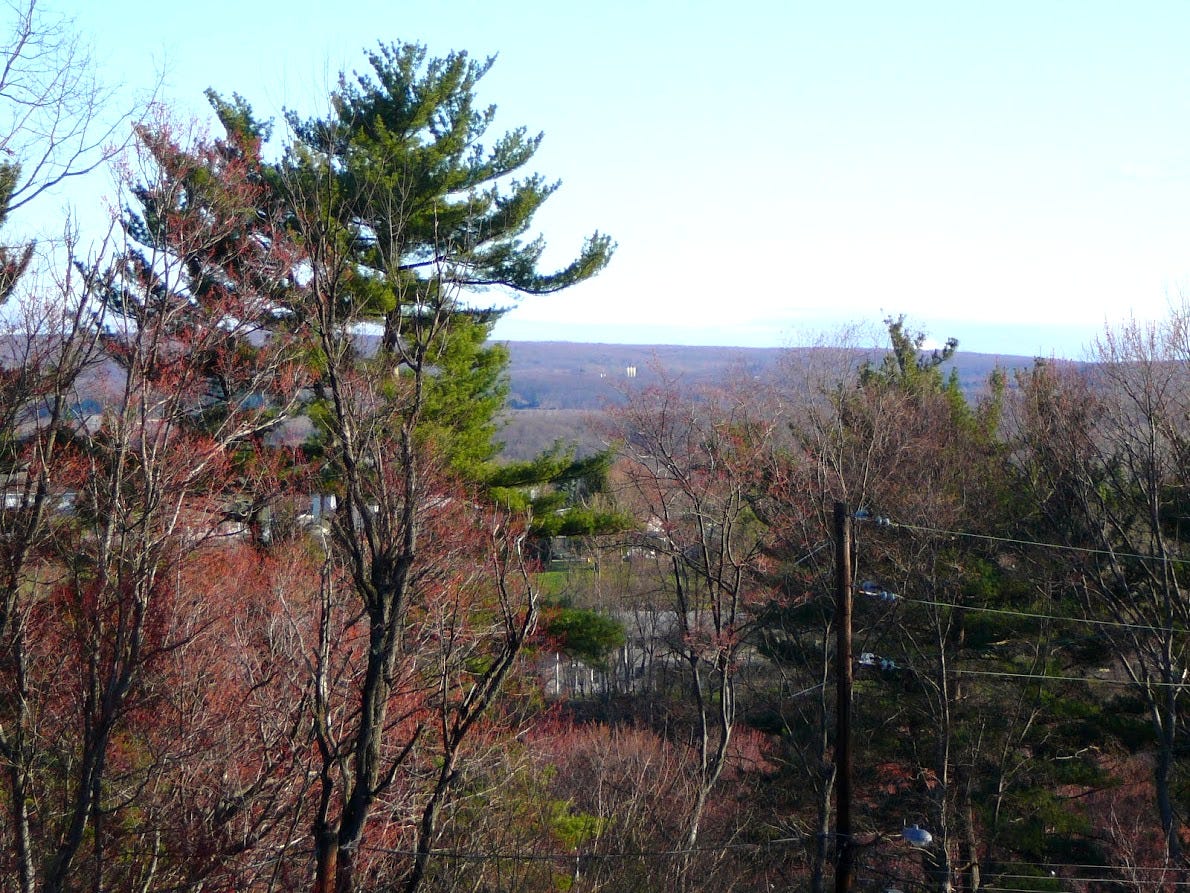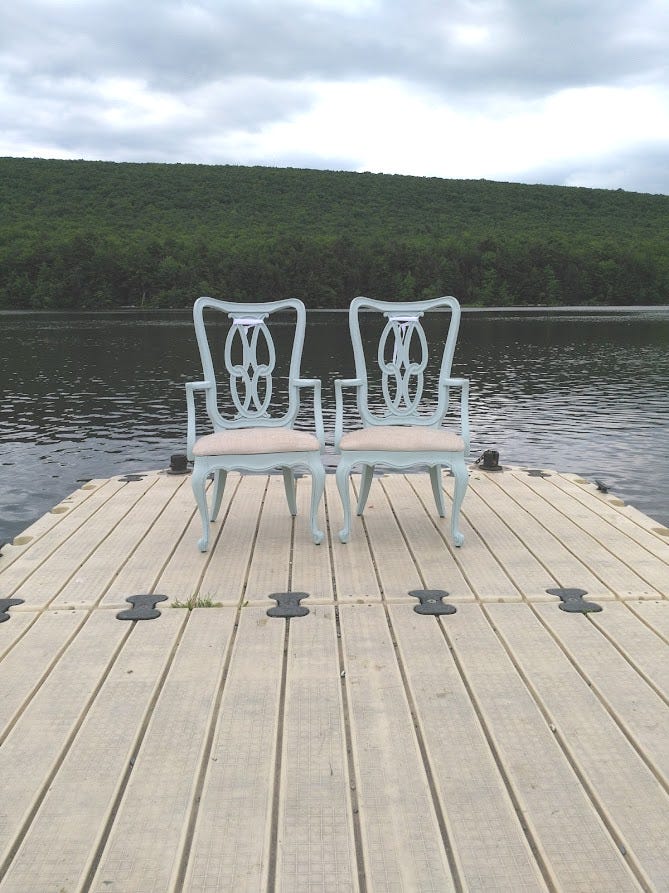Love thy Neighbor (1)
Before moving forward, in the direction of French country living and life at the manor, I must first take a few steps back in time.
When my father died, we had to leave our home, sold at a loss to pay off debt, but we got some cash out of the deal. At about that time, while out riding my bike, I passed a house for sale not far from our former home. I told my mother. She called the realtor. We visited, we liked it, we paid cash. The year was 1968. My mother lived there almost till her death in 2012.
During all those years we had the same neighbors.
In my hometown of Pottsville, even the most majestic homes are often built on small lots. Our new home was a narrow house with a small front yard, a path along the side, and a long narrow yard (no one in the coal region says garden) running down the back to an alley that ended where the woods began.
To one side of our home sat a wooden house painted pale yellow and white. It had a bigger yard than ours and, besides a wire fence separating the two properties, a row of pines so tall and bushy that at night the branches scratched my bedroom window. I slept in the attic beneath the eaves.
On the other side, there was a double house, the entire structure inhabited by three generations of the same family.
Directly across from us sat a small garage belonging to the house at the corner of our street.
For all those years, our neighbors never changed. For all those years, we were friends. For all those years, we drove each other crazy.
The yellow house was a picture-book kind of place, prim and pretty, but it needed a paint job. The yellow was fading. In some places, gray wood showed through. The property was surrounded on three sides by a white picket fence. Some pickets were loose, others broken. If the owners didn’t watch out, this quaint shabbiness could easily become decrepitude.
On the other side, the double house was new. It had replaced a giant pine, still standing when we first moved in. In a storm, it creaked and rocked and threatened to fall and split our house in two. That’s why my mom agreed to the construction of the house, never imagining it would be so close to ours that we could hold hands with the children next-door simply by leaning out the upstairs hallway window.
As for the garage, a few years down the road, it was enlarged and its roof raised.
In the yellow house lived a couple with two daughters. Eight years after we moved in, they became part of our family when my sister married the younger brother of the man next-door.
Until the early 1990’s, the yellow house and its white picket fence deteriorated further. Then our neighbor, my sister’s brother-in-law, who was by that time in his early 50’s, bought an electric sander and announced he was going to sand the house himself. The yellow paint covered good wood, cedar! He was going to remove the paint and then stain the wood. His goal: to turn his home into a giant gingerbread house.
Our neighbor worked in a chemical plant as a troubleshooter and could repair any machine in the place. He never missed a day of work and was so regular in his habits that you could set your clock by when he went out in the morning or came back in the late afternoon.
My mother joked that his sweet wife, a true Irish rose, sat in the kitchen with a shovel that held his evening meal. He walked in, she shoveled the food into his mouth, and five minutes later, he was outside, climbing up the scaffold he’d installed himself. Until well after nightfall, he sanded.
For years, that summed up our summer evenings, the constant gurr of an electric sander against wood, hours and hours of it. When the weather was at its loveliest, we had to close all the windows to protect ourselves.
He never finished the job, but it was not for want of persistence. It was just too big for one man. After he retired, he had to stay off the scaffolding for health reasons. That’s when he set up a couple of workhorses beneath the window of what had become my summer office when I visited my mother. On them, he would pose, one by one, the fence pickets and sand them. In the daytime, all day long. He didn’t go to the plant anymore.
Until my mother died and probably beyond, he sanded—for over twenty years—and we loved the man.
On the other side, in the double-house, our neighbors were a Methodist preacher, his wife, his daughter, and her boy and girl. The daughter was a math teacher, my mother’s colleague and friend. We all commiserated about our summer evenings ruined by the sanding. They had a beautiful deck looking out over the hills to the west. They couldn’t use it to dine because that was the hour when sanding was at its most intense.
They also planted wisteria at the edge of their backyard. My mother hated wisteria and theirs went wild, invading her property, twining itself in her chain-link fence. When I visited in the summer, my first job was to get outside and get rid of it. My mother complained bitterly about the wisteria vines and roots. That fence had cost her a lot of money and surely the wisteria would destroy its foundations.
As for the garage facing our home, the adult son of the couple who owned it was on disability because of a back injury. Well, said my mother, that doesn’t stop him from trimming the hedge in summer, shoveling snow in winter, or staying up all night.
In the garage. He worked all night in the garage, hammering metal, sawing, playing tunes. He kept the garage door open and it faced our bedroom windows. On our street there was little traffic, but it was noisy night and day.
Behind closed doors, my mother complained bitterly. That was her word, “bitterly,” but sometimes she got so angry, she sputtered. The damn neighbors were driving her mad!
Once she stepped outside, she was all neighborliness and smiles. As she said when I suggested I talk to our neighbors about the subjects of her laments, she had to live with these people year-round. She wasn’t simply passing through like me.
Behind other closed doors, I’m sure there were lots of complaints about us.
In that Pottsville neighborhood, for nearly a half-century, reigned stability and good will among neighbors.
In Paris, I experienced twenty years of neighborly camaraderie.
Then, once I stepped outside the safety of my Parisian neighborhood, I came up against violence both physical and verbal, rumors meant to harm and isolate.
This is something I need to explore. As go our relations with our neighbors, so goes the world.









